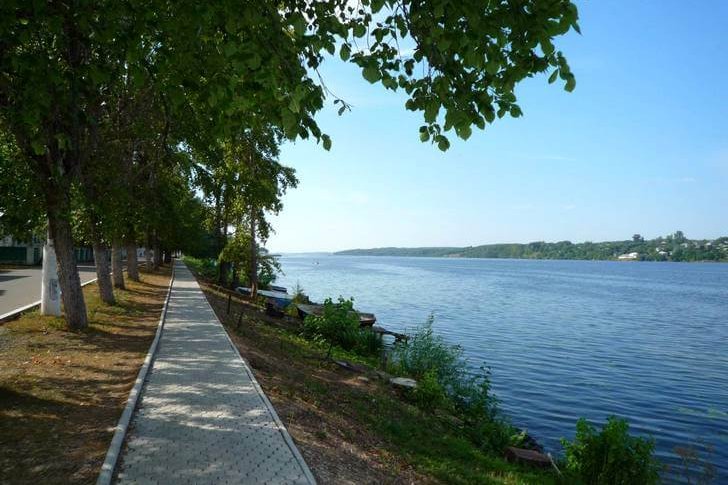Ples is a picturesque oasis of calm and harmony, lost on the banks of the Volga among birch groves. Time seems to have stopped here and the 19th century is still going on. No wonder the town is considered a tourist gem, and buying a house here and spending the evenings on the veranda, enjoying the magnificent sunsets, is not a cheap pleasure.
Plyos is inextricably linked with the name of I. I. Levitan. Here he drew inspiration, drawing his famous landscapes, which glorified him throughout the country. The artist's canvases depict the Volga, birch forests, fields and village churches. In a word, those classic views of the middle lane, which are considered to be primordially Russian. It is here, in Plyos, that you can see all this beauty live.
What to see and where to go in Plyos?
The most interesting and beautiful places for walking. Photos and a short description.
- Mount Levitan and the wooden Church of the Resurrection
- Cathedral Mountain
- House Museum of Isaac Ilyich Levitan
- Landscape museum
- Levitanovsky cultural center
- Provincial Art Gallery–M
- Museum Center of the Archaeologist Pavel Travkin
- Museum Russian hut
- Places of presence
- Wedding Museum
- Art crafts of the Ivanovo Territory
- Museum of Decorative Glass
- Stone Church of the Resurrection
- Assumption Cathedral
- Church of St. Barbara
- Sculpture Dachnik
- Monument to the cat Fly
- Monument to Isaac Levitan
- Sculpture Palette
- Embankment and the Volga River
Mount Levitan and the wooden Church of the Resurrection
Mount Levitan was named after the famous artist, its historical name is Petropavlovskaya. The painter was very closely associated with Plyos, here he painted most of his famous paintings. Quite often, standing on the top of a hill, the maestro painted the bewitching landscapes of the Volga. His image is immortalized in a monument, which is installed on the top of a mountain next to a small wooden church of the 17th century with a carved iconostasis. Previously, in its place stood exactly the same temple, built in the 16th century, but it burned down in 1903. In 1982, a similar building was found in the village of Bilyukovo and moved to the place of the lost one - it is this building that can be seen today on Mount Levitan.
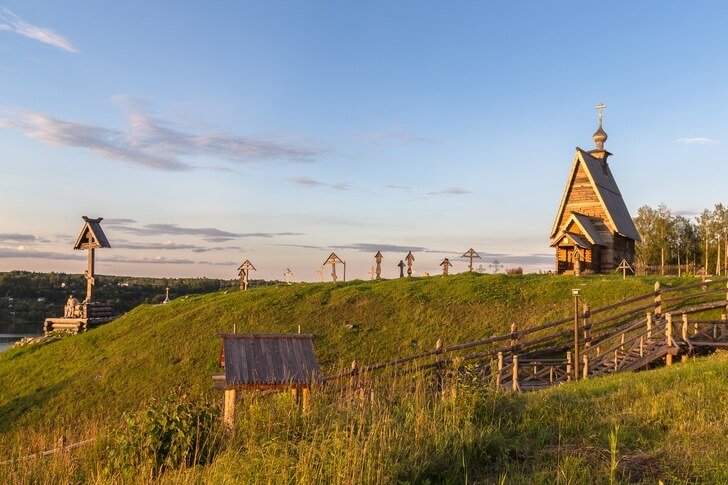
Cathedral Mountain
Cathedral Mountain is considered the heart of Plyos. Under Prince Vasily Donskoy, a wooden fortress stood at the top, of which only an earthen rampart has survived to this day. Nowadays, a walking alley has been laid around a hill 70 meters high, the Assumption Cathedral and the bust of Vasily I adorn the top, there are also a building of official places of the end of the 18th century, observation platforms and gazebos.

House Museum of Isaac Ilyich Levitan
The museum is located in a 19th-century stone estate that belonged to a local merchant. Almost in the same house for several summer seasons, I. I. Levitan rented rooms when he visited Plyos. The building stands right on the banks of the Volga. The collection was founded in 1972. In the museum you can get acquainted with the works of Levitan, look at the furnishings of his home and learn about the life period of the artist associated with Plyos.
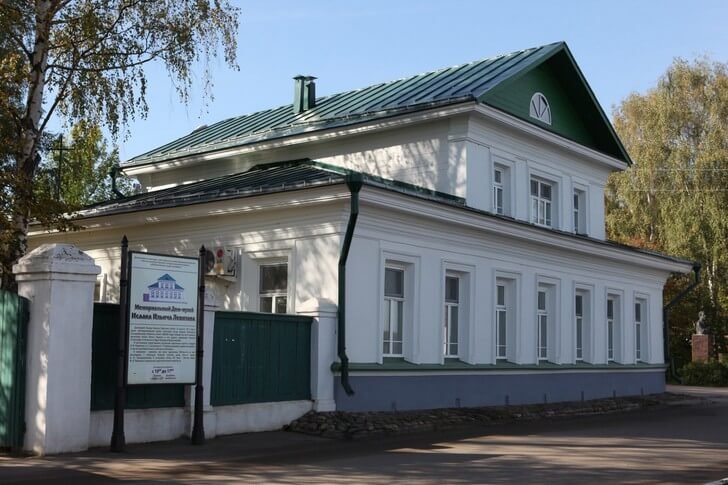
landscape museum
The museum was opened in 1997 in the former merchant mansion of the Groshev-Podgornovs, which was built in the 18th century in the style of provincial classicism. This house is depicted in the painting “Evening. Golden Reach” by I. I. Levitan. The exposition consists of paintings by painters of the 19th century depicting landscape scenes. In the halls you can admire the works of I.I. Shishkina, N.A. Klodt, A.A. Kiselev and other masters.
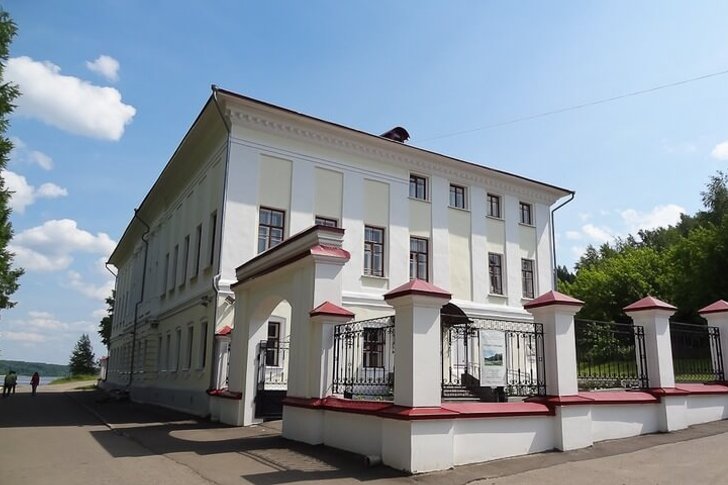
Levitanovsky cultural center
The cultural center was opened in 2012 in the presence of the governor of the Ivanovo region. It is located in a stone building of the 19th century, classified as an architectural monument. More than 100 years ago, there was a women's school on its territory. Before the start of the work of the institution, it was carefully restored. The center has two exhibition areas and a stage adapted for concerts and film screenings.
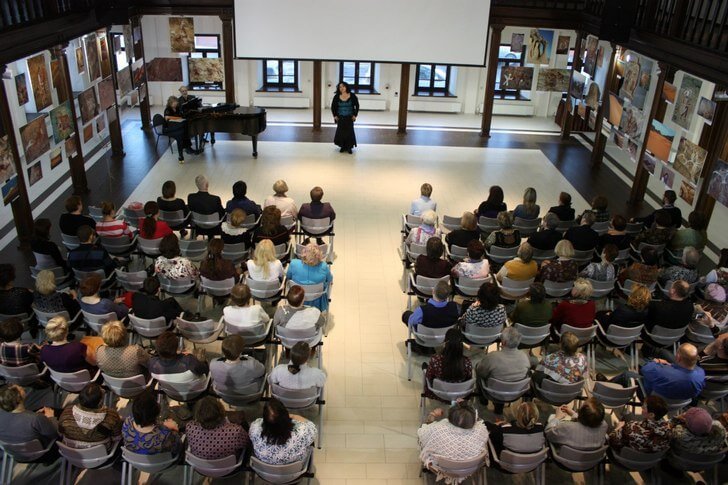
Provincial Art Gallery–M
The gallery's collection is a collection of objects of decorative and applied art: lacquer miniatures of Kholuy, Palekh and Mstera, items made of painted faience and silver, as well as busts of V. I. Lenin, made by different masters. Among other things, the museum presents more than 150 paintings by the artist V. A. Fedorov, who made no less contribution to landscape painting than I. I. Levitan.

Museum Center of the Archaeologist Pavel Travkin
The Plyos Museum of Archeology is not designed as a classical repository of Stone Age antiquities. On the contrary, tourists are offered to make a fascinating journey into the distant past, looking at the restored pieces of history: an archaeologist's corner, a Paleolithic fishermen's camp, a reconstruction of a Russian hut of the 13th century. The institution was founded by P. Travkin, a historian and specialist in the field of excavations.
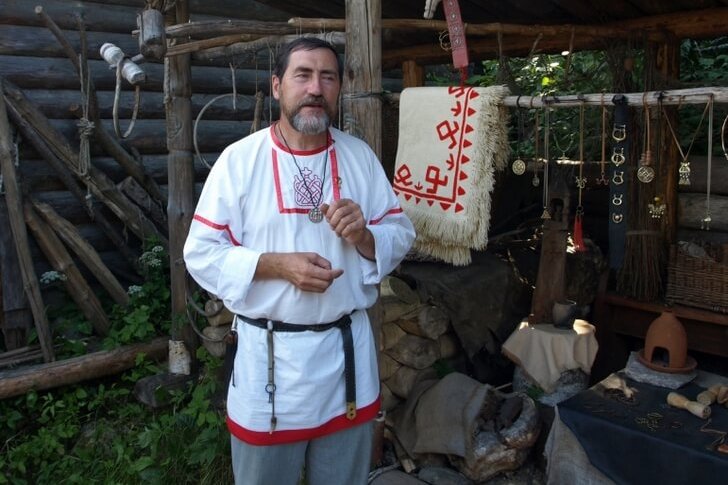
Museum "Russian hut"
Private exhibition, located in a wooden hut, inside which the interior of the Plyos dwelling of the 19th - early 20th centuries is recreated. The exposition is thought out to the smallest detail, so visitors have a full-fledged effect of presence, as if they were transported many years ago. As part of the tour, an interactive program is provided with the involvement of listeners in the process.
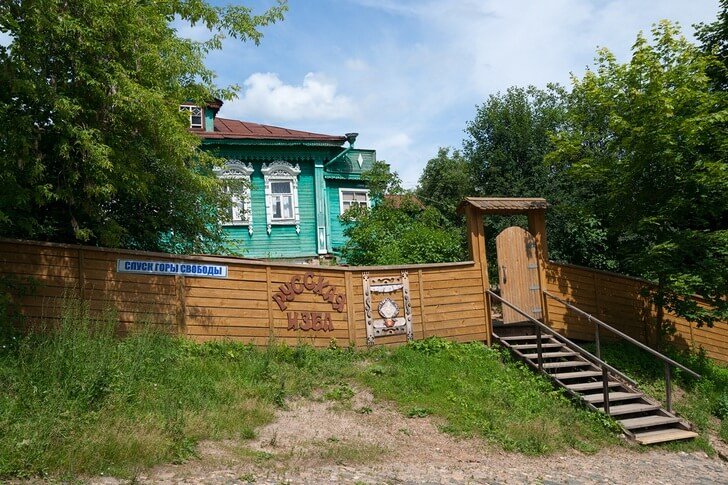
"Places of presence"
Offices - an exhibition complex on Cathedral Hill, located in a three-story building built in 1786. Previously, it housed the government, a bank and a men's school. Today, temporary exhibitions are held in the premises of the first and second floors, in the basement there is a permanent exposition "Ancient Plyos and Ivanovo Land", which tells about the history of the region from ancient times to the 17th century.
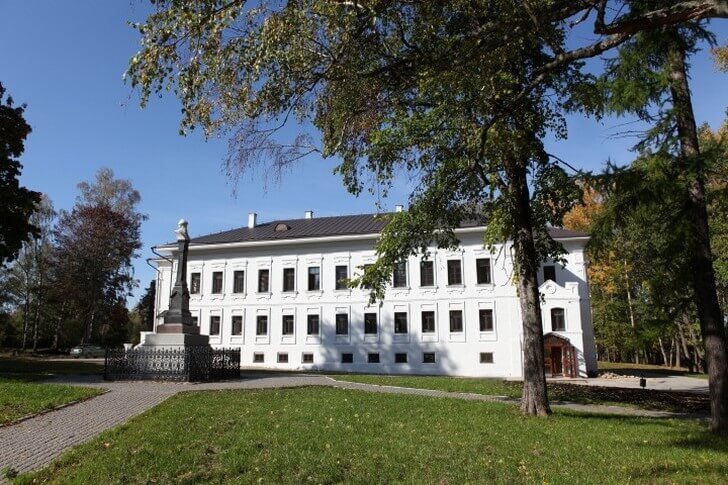
Wedding Museum
The museum is located inside a small house that once belonged to the Plyos pharmacist. The exposition is a restoration of the wedding ceremony, adopted in small towns and villages in tsarist times. From the informative story of the guide, visitors will learn about the customs, rituals, as well as tricks and tricks that the contracting parties went to for marriage.
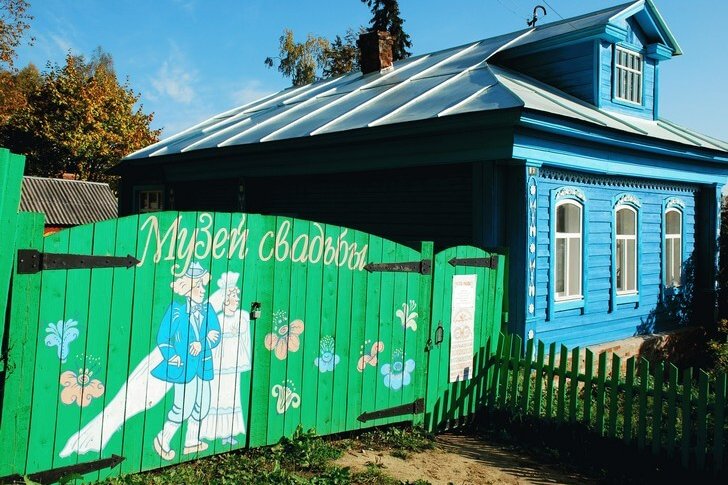
"Art crafts of the Ivanovo Territory"
The exhibition opened in 2008. It is located on the territory of a 19th-century building, formerly known as the "Flour Rows". The collection is a collection of lacquer miniatures and textiles - traditional crafts of the Ivanovo region. About 200 items are placed in two halls, including furniture and machine tools. During the exposition there is an art salon where you can buy the works of the authors.
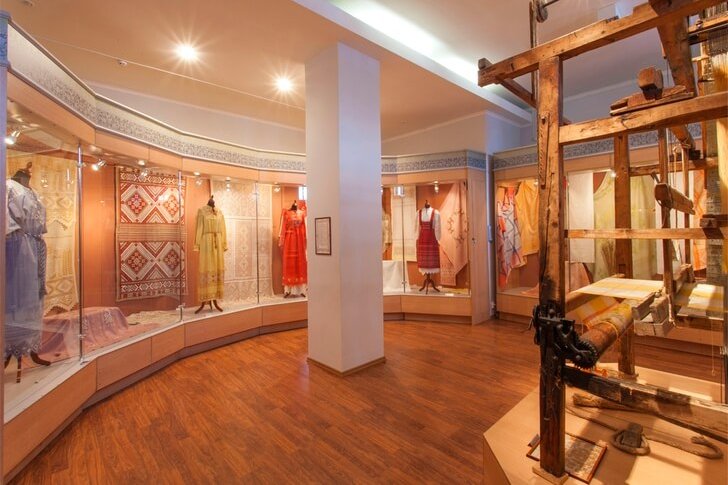
Museum of Decorative Glass
Private collection, founded in 2007 by the artist A. I. Timofeev. It is a collection of works by the master, made of glass or using this material, as well as paintings drawn by him. Some exhibits are very original and unusual - it is not for nothing that the master's creations are kept in private collections not only in Russia, but also in other countries.
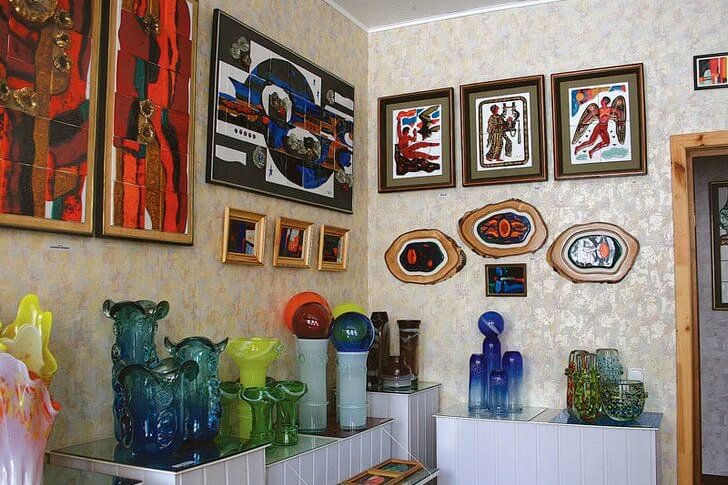
Stone Church of the Resurrection
The temple was erected in 1817 in honor of the victory in the Patriotic War. The building was built in two styles: Yaroslavl architecture of the 17th century and late classicism. The church is made in the form of a quadrangle on the basement, crowned with five domes. The dominant feature of the entire building is a three-tiered bell tower. The temple is located on the high bank of the river. It hovers over the embankment and looks picturesque against the backdrop of the water surface.
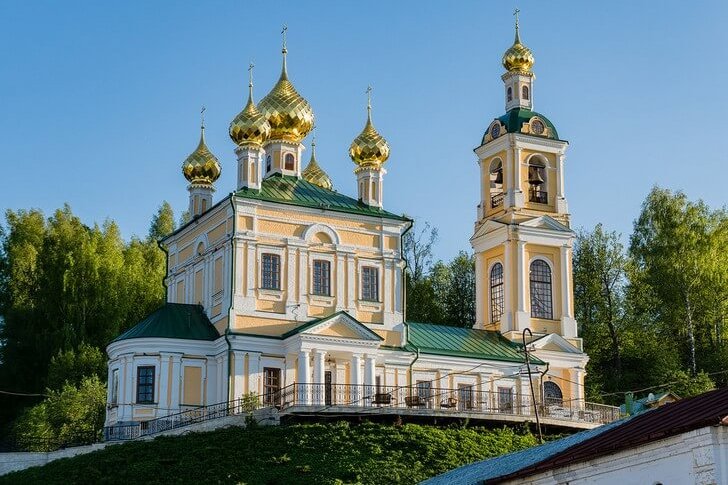
Assumption Cathedral
The temple adorned Cathedral Hill in 1699. It was erected on the site of a wooden fortress that previously defended Ples from enemy attacks. The building was built in a laconic architectural style, which is often called a provincial interpretation of the Moscow Baroque. The simple design of the external appearance refers the observer to the church architecture of the 17th century.
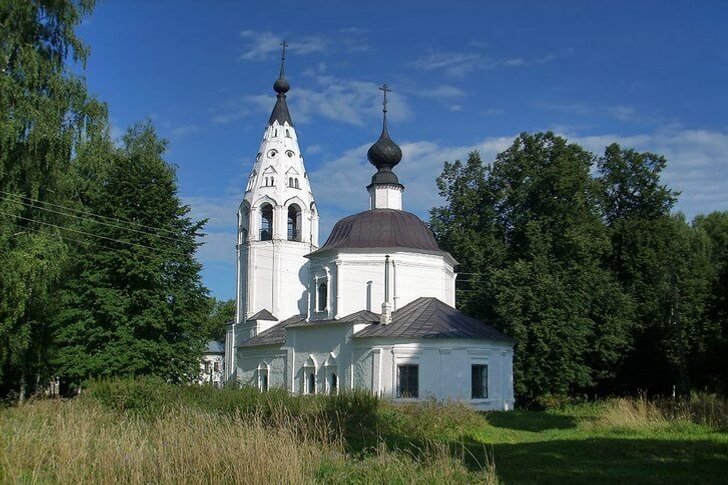
Church of St. Barbara
The church was built in the 19th century on the site of an old wooden church. Its value lies in the fact that the original interior and murals in the Baroque style have been preserved inside (the building itself was erected in a classical manner). The building is depicted on tourist postcards and magnets, as it is considered one of the symbols of the town. Church services are held on weekends and holidays.
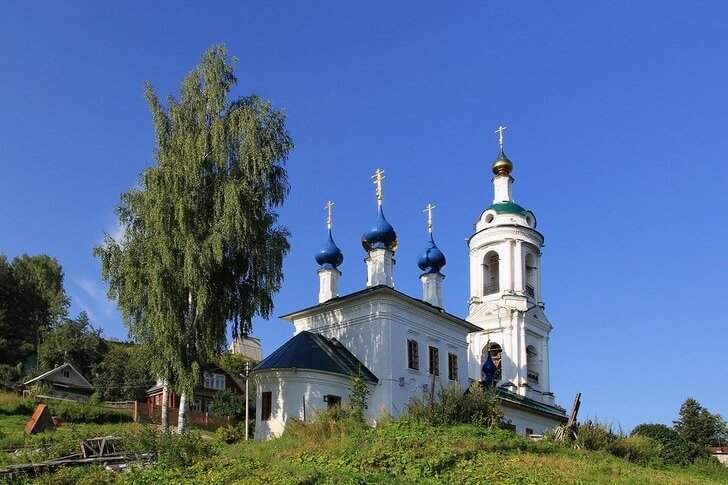
Sculpture "Dachnik"
The figure of a summer resident sitting on a bench adorned the banks of the Volga in 2010. She is a romantic image of a young girl of the 19th century in a hat and a light summer dress, looking thoughtfully into the distance and enjoying the picturesque landscapes. The composition was created for the 600th anniversary of Plyos by members of the Credo creative association. Next to the girl, you can take a picture by sitting on a bench.
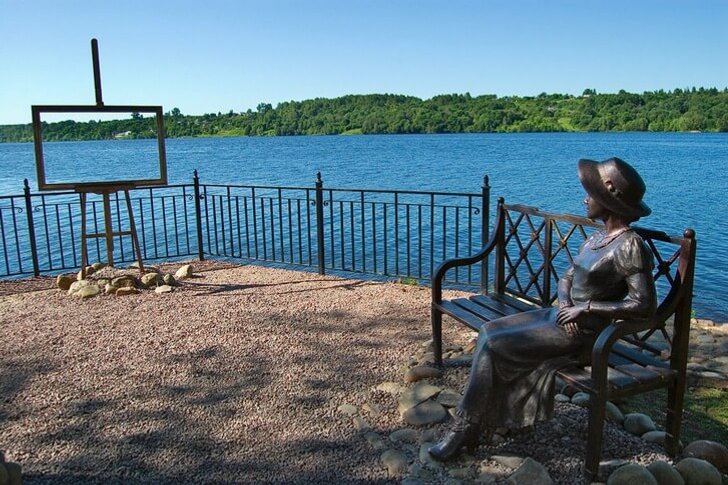
Monument to the cat Fly
The Plyos cat appeared on the city embankment in 2008. It is not an abstract monument to a furry animal, like many similar works in other Russian cities. On the contrary, the statue is dedicated to a very specific cat, Fly, who lived in the house of the painter V. Panchenko. The figure was made of concrete by the Belarusian sculptor O. Illarionov, a friend of the artist's family.
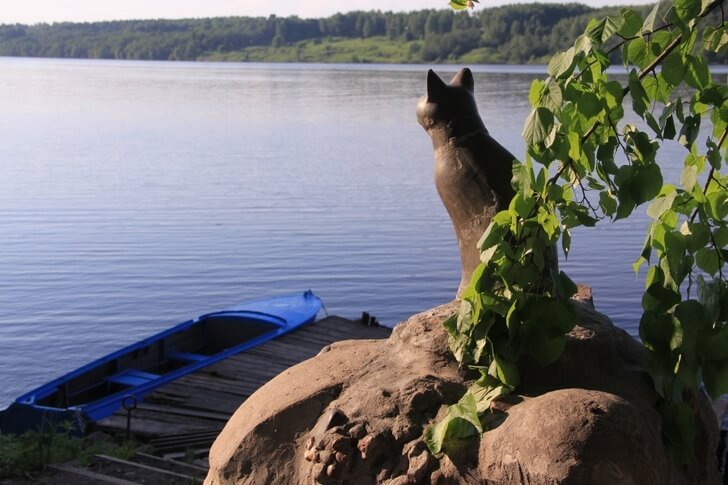
Monument to Isaac Levitan
Ples occupied a special place in the creative life of I. I. Levitan. It was to this picturesque town on the Volga that the artist returned again and again to create his beautiful landscapes. In gratitude for such unconditional affection, the descendants created a half-figure monument in order to once again perpetuate the image of the master of the Russian landscape in their hearts.
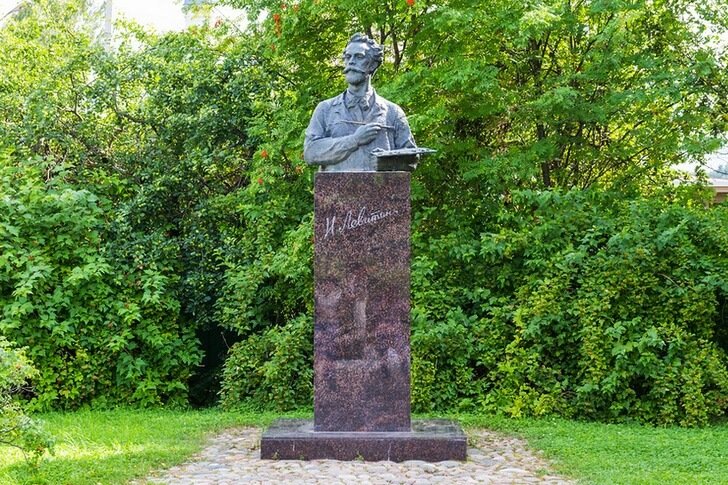
Sculpture "Palette"
The sculpture was installed on Mount Levitan in 2012. It depicts the image of an artist completely absorbed in his work and painting one of his famous landscapes. The composition is located on a small area near the wooden Church of the Resurrection, from where a breathtaking view of the Volga, Plyos, the opposite bank and the vast expanses of the Russian Plain opens.
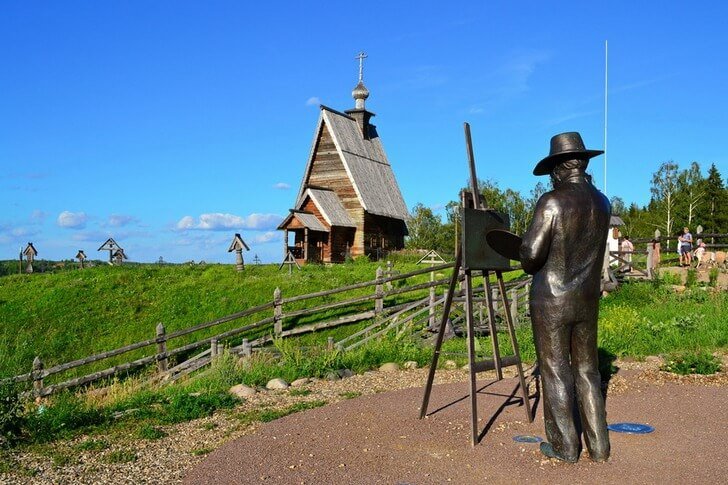
Embankment and the Volga River
Walking along the Plyos embankment, it is as if you are in the last century - stone mansions stand on the banks, cruise ships sail by, guests sit on summer verandas on the pier, enjoying beautiful landscapes, artists exhibit their works on improvised counters. No wonder this place is considered the visiting card of the town. Without visiting it, it is impossible to feel the charm of Plyos.
